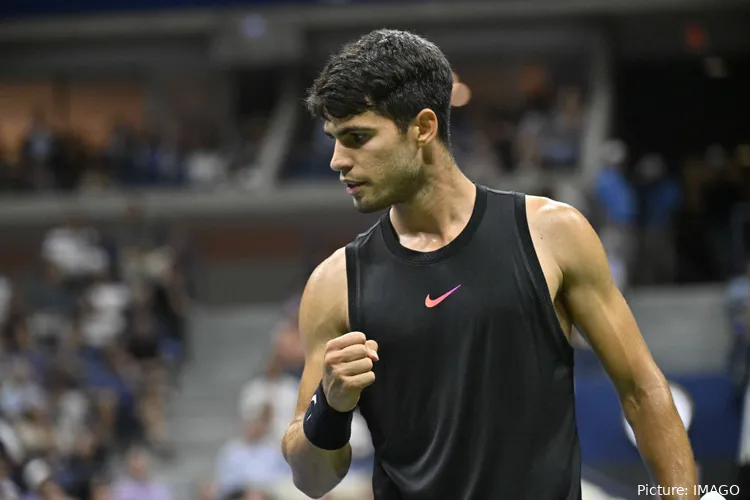
Carlos Alcaraz, the 21-year-old Spanish tennis prodigy, has long been heralded as the heir to the sport’s greatest icons, with four Grand Slam titles and a recent Monte Carlo Masters victory to his name. Yet, beneath the dazzling forehands and infectious smile lies a story of struggle that nearly saw him walk away from tennis in 2025. In a candid revelation after his Monte Carlo triumph, Alcaraz admitted to grappling with personal and professional turmoil that pushed him to the brink of quitting. “It’s a combination of everything,” he said, reflecting on a challenging period that tested his resilience. His journey from despair to dominance on the clay courts of Monaco is a testament to his grit and passion for the game.
The 2025 season started with promise for Alcaraz, who entered as the world No. 3 and a favorite at the Australian Open. However, a quarterfinal loss to Alexander Zverev exposed cracks in his game, marked by uncharacteristic errors and lapses in focus. The defeats piled up—early exits at Indian Wells to Jack Draper, Miami to David Goffin, and a quarterfinal stumble in Doha to Jiri Lehecka. “I don’t know what I could have done better,” Alcaraz admitted after Doha, a rare moment of self-doubt for a player known for his confidence. Off the court, personal struggles compounded his woes. “It’s been a tough month for me. On and off the court. I don’t wanna say in public, but I was struggling stepping on the court,” he shared, hinting at private challenges that sapped his mental energy.
Alcaraz’s dip in form sparked concern among fans and analysts. His aggressive style, typically a blend of Nadal’s tenacity, Djokovic’s court coverage, and Federer’s flair, faltered. High-speed data from tournaments showed his forehand speed and return effectiveness dipping below tour averages, a stark contrast to his 2024 dominance, where he won Roland Garros and Wimbledon. Critics pointed to his hectic schedule, including exhibition matches in New York and Charlotte, as a drain on his energy. Former pro Andy Roddick noted, “He’s going to have to learn how to schedule, how to say no,” suggesting Alcaraz’s desire to please everyone was taking a toll. A brief ankle injury in Rio and a grueling Olympic campaign, where he earned a silver medal but lost a thrilling final to Djokovic, further strained his physical and mental reserves.
The turning point came in Monte Carlo, where Alcaraz arrived seeking redemption on his beloved clay. “I’m just really happy to win Monte Carlo for the first time. It has been a really difficult week with a lot of difficult situations,” he said post-victory. Facing Lorenzo Musetti in the final, Alcaraz rediscovered his spark, blending explosive groundstrokes with his signature drop shots—praised by Roddick as “the best in the history of tennis.” His 7-6, 6-4 win over Alejandro Davidovich Fokina en route to the final showcased his resilience, as he saved six match points. The triumph, his ninth clay title, propelled him back to world No. 2, edging out Zverev and closing the gap on No. 1 Jannik Sinner.
Alcaraz’s Monte Carlo success was more than a trophy; it was a lifeline. His decision to bolster his coaching team with Samuel Lopez, who joined long-time mentor Juan Carlos Ferrero, provided stability. “They are different persons. When I’m with Samuel, off the court he gives me calm,” Alcaraz said, crediting the duo’s synergy. Time spent with family in Murcia, where he remains “just a normal guy” to his parents and three brothers, also grounded him. “When I finish a tournament, it doesn’t matter if I win or not, I just want to get home to be with my family,” he once told reporters, a sentiment that likely fueled his recovery.
The clay season now looms as Alcaraz’s chance to cement his resurgence. With a 3-1 clay record over Zverev and a 6-4 edge against Sinner, he’s poised to challenge for titles in Madrid, Rome, and Roland Garros, where he’s the defending champion. His 86-18 career clay record and combative mentality—“patience and the ability to suffer” on the surface—make him the man to beat. Yet, the specter of his earlier struggles lingers. “I was struggling to find a way to not think about everything,” he admitted, a reminder of the mental battles that nearly derailed him.
Alcaraz’s story in 2025 is one of vulnerability and redemption. From the brink of quitting to the Monte Carlo podium, he’s shown that even tennis titans face human struggles. As he prepares for the French Open, where a potential Djokovic showdown awaits, Alcaraz’s journey resonates beyond the court—a young star learning to balance stardom, expectations, and his love for the game.
Leave a Reply